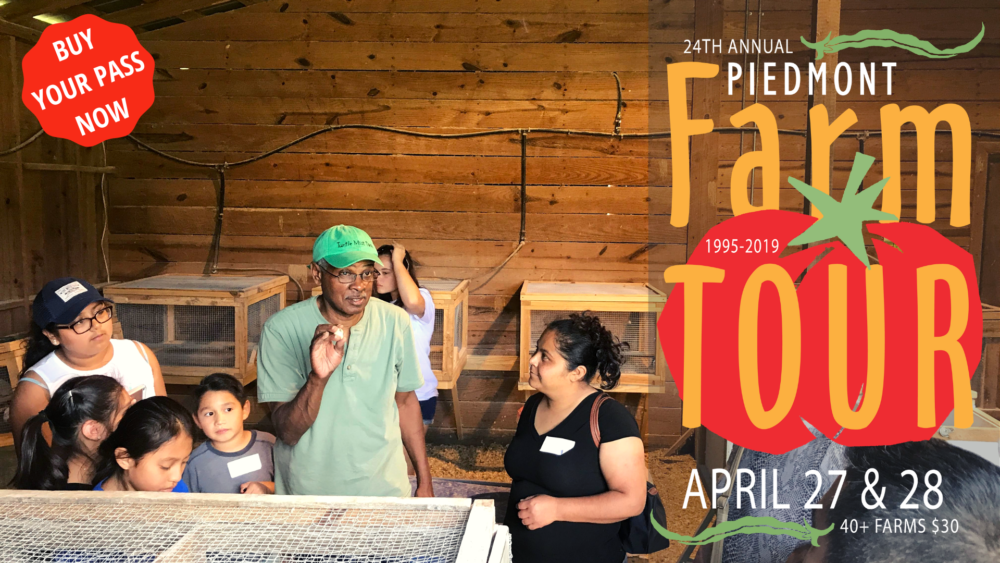Tessa Thraves, NC Farm to School Coalition | Wednesday, Apr. 17, 2019 –
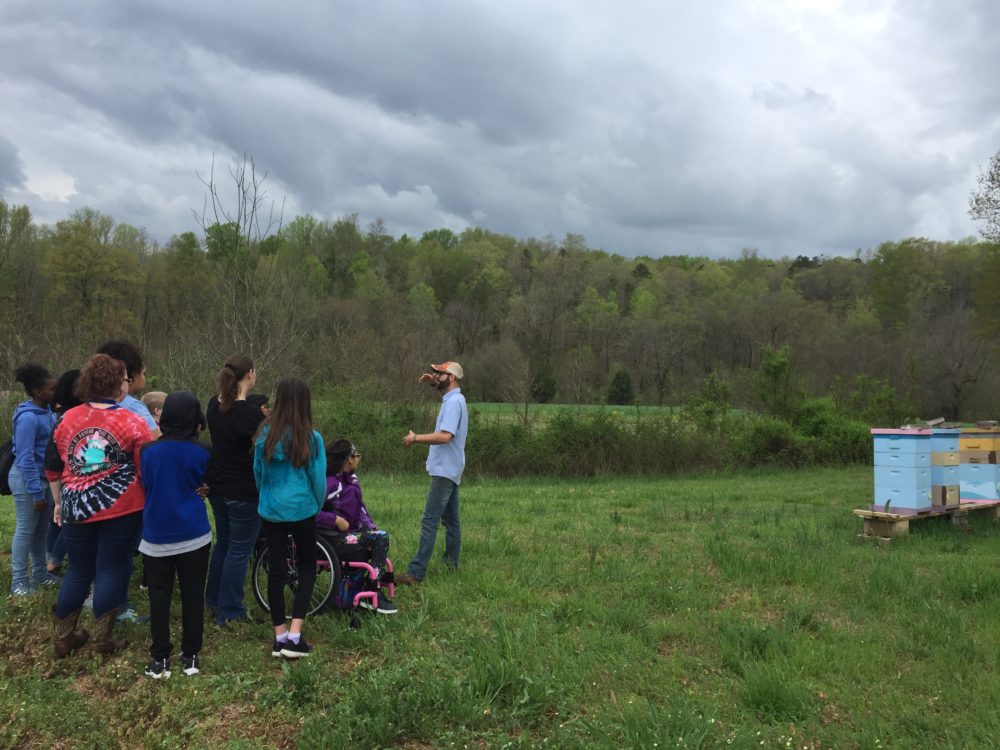
North Carolina has been a leader in farm to school efforts for decades, and we are eager to strengthen this work even more. The Farm to School Coalition of North Carolina is a collective of state agencies and non-profit organizations that are working together to do just that—celebrate all the existing efforts as well as expand and strengthen farm to school efforts across North Carolina.
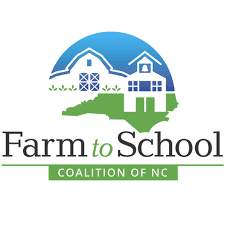
As part of these efforts, the coalition seeks more locally-produced nutritious food in school meals as well as opportunities for students to learn how their food is produced and how to make healthy choices. This educational component makes a huge impact on children’s interest in the food on their plate. You’ll hear teachers say, “If kids grow it, they’ll eat it,” from familiar carrots to veggies they might never have seen before like kohlrabi! And farm-to-school work is place particular by incorporating local food culture, local farmers, and foods that are seasonal to a geographic region.
“(Purchasing from local farms) helps build resiliency in our communities; it is bigger than just my purchasing fruit.”
When we talk about farm-to-school work, we are including all kinds of different components of farm to school:
- Local food purchasing for school meals
- Wellness policies
- Field trips to farms
- Farmers visiting schools
- School gardens
- Cooking classes
- Agriculture, food system, and nutrition education
Any piece of this with an aim to add more components to the mix, as again the combination of education with putting local food on the plate increases consumption.
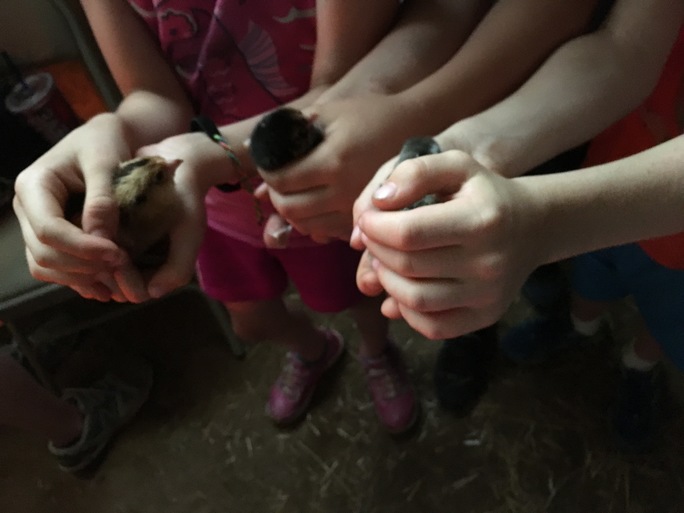
School kids hold baby chicks while on a visit to Minka Farm in Efland
The coalition has a number of members on the steering committee, which includes CFSA, Appalachian Sustainable Agriculture Project, the Center for Environmental Farming Systems, FoodCorps NC, and multiple state agencies including the NC Department of Public Instruction, NC Department of Agriculture, and NC Department of Health and Human Services.
A number of CFSA member farms identify as participating in farm to school, including a handful on this year’s Piedmont Farm Tour – Minka Farm (Efland), First Fruits Farm (Louisburg), Dawnbreaker Farm (Hurdle Mills), and the Well Fed Community Garden (Raleigh). And while selling to school nutrition programs can offer challenges, particularly for small farms, there are lots of ways and reasons why a farm might participate in farm to school activities in their county or region.
James Brown, owner of First Fruits Farm, says they work with school groups to teach “the life cycle of a plants, how to plant a seed, the importance of the soil, and how to be good stewards of the land–all universal concepts that are important for every child to know and understand.”
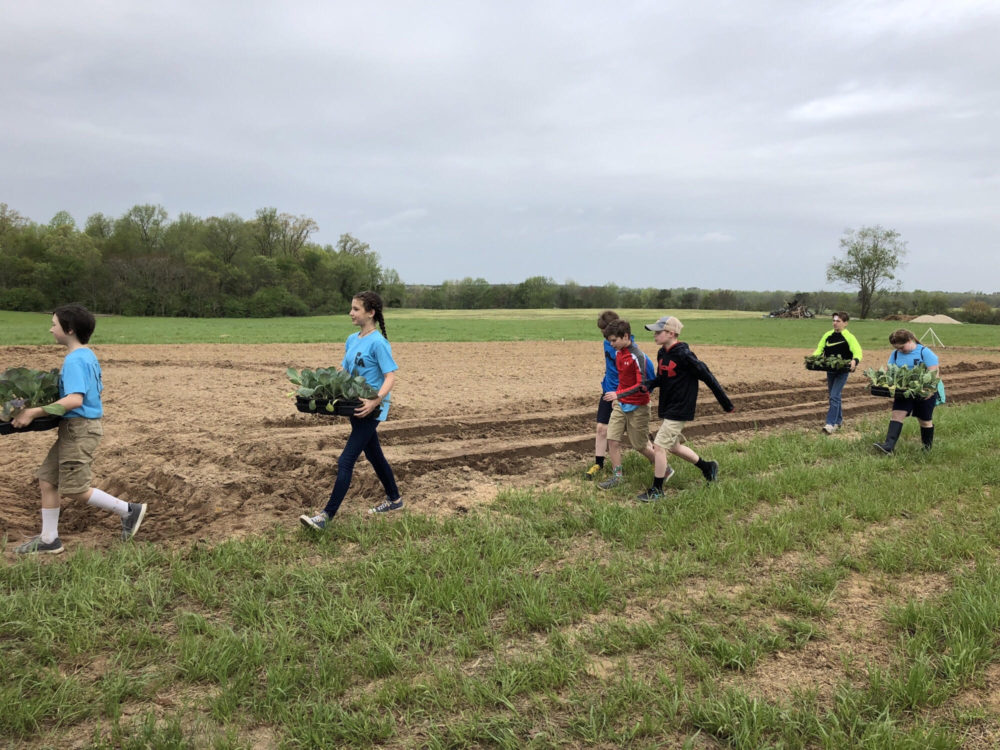
Students from Franklin Academy help transplant at First Fruits Farm in Louisburg. Photo: First Fruits Farm.
Morgan Malone, farm manager at the Well Fed Community Garden, says that teaching kids helps them fulfill their mission: “Not only are we building healthy soils and ecosystems for the future, we are also providing the next generation with knowledge and tools they can use to better the planet.”
“Not only are we building healthy soils and ecosystems for the future, we are also providing the next generation with knowledge and tools they can use to better the planet.”
Some farms find selling to schools or child care centers as a way to diversify their market and some are dedicated to connecting directly with kids and their families in their own community. “Purchasing from local farms for my schools,” says Paula DeLucca, the Nutrition Director in Wake County, who posts farmer profiles on her nutrition website, “helps build resiliency in our communities; it is bigger than just my purchasing fruit.”
The Farm to School Coalition of NC is grateful to CFSA and all the farms who participate in any form farm to school. While you’re on the 2019 Piedmont Farm Tour, please take the time to stop by these farms and say thank you:
- Minka Farm
- First Fruits Farm
- Dawnbreaker Farm
- Well Fed Community Garden
Want More Information About the Coalition?
- Visit the Farm to School Coalition of North Carolinas’s website.
- Join our efforts by signing up on our Get Involved page.
- Follow us on Facebook.
- Help us spread support for farm to school by word of mouth!
Want to Do Something to Help Farm to School?
Wouldn’t it be great if NC made it easier for school cafeterias across the state to serve fruits and vegetables from local farmers? That just might be in the cards this year!
The North Carolina General Assembly is considering adding over $10 million to the state budget to support farm to school. From helping school cafeterias buy what they need to prepare fresh food, training cafeteria staff on what to do with a bunch of carrots with the tops still on to giving schools funds to buy local even when it isn’t the cheapest option, this is a step in the right direction.
Stay up-to-date on what’s happening with the farm-to-school effort in Raleigh by signing up for CFSA’s Action Alerts.



